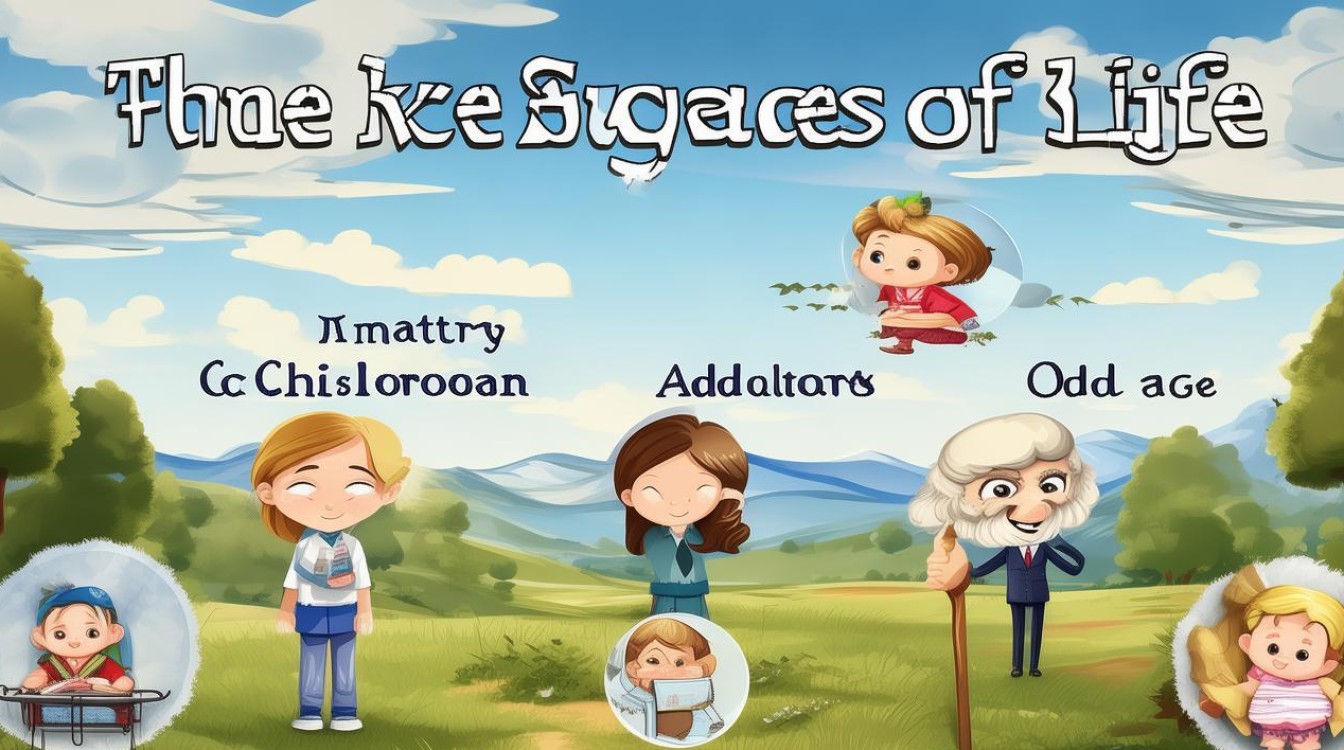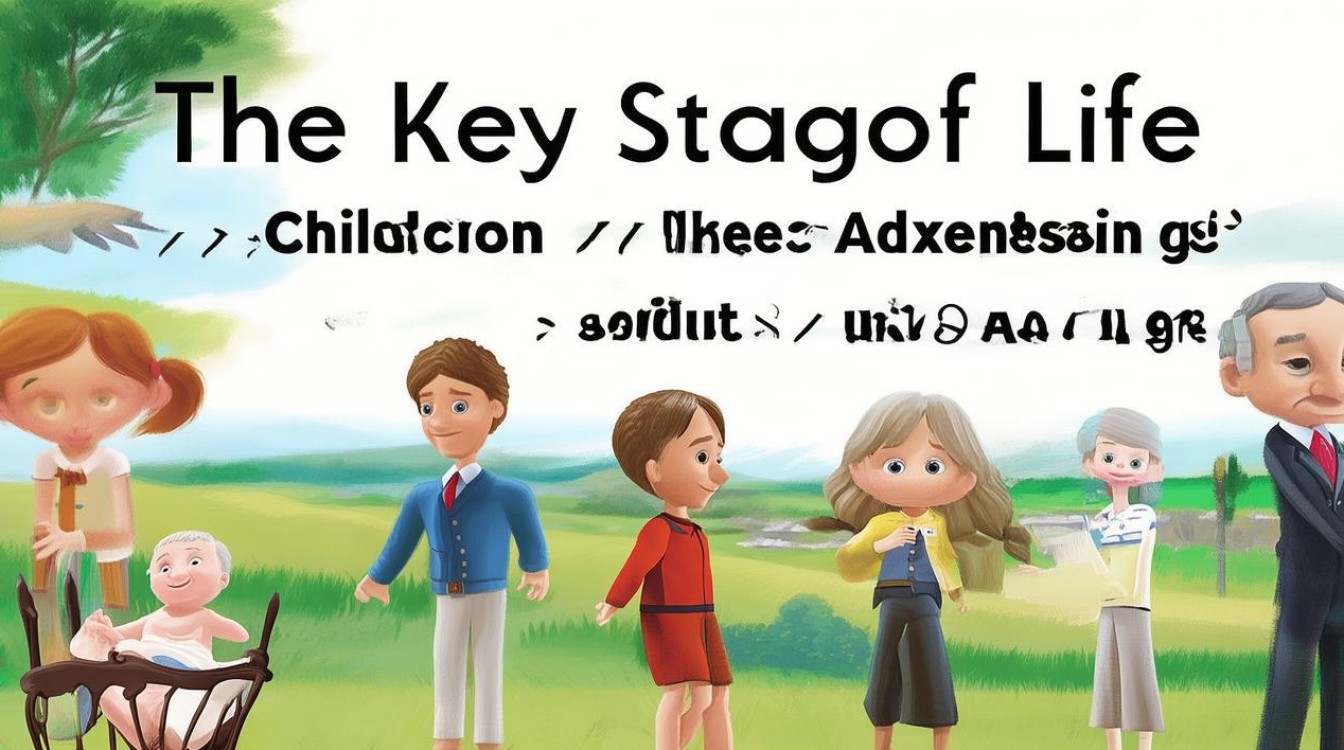Life is a journey marked by distinct phases, each with unique experiences and challenges. Understanding these stages helps us navigate transitions with clarity. Here are the five fundamental life stages along with essential English vocabulary to describe them.

Childhood (Birth – 12 Years)
Childhood is the foundation of human development, filled with learning, play, and growth. Key words associated with this stage include:
- Infancy (0-2 years) – The earliest phase, focused on basic needs.
- Toddler (1-3 years) – A child learning to walk and talk.
- Preschooler (3-5 years) – Engages in early education and social interaction.
- Elementary school (6-12 years) – Formal education begins, shaping cognitive skills.
Common terms:
- Milestone (e.g., first steps, first words)
- Imagination (creative play is crucial)
- Curiosity (drives early learning)
This stage shapes personality and foundational skills.
Adolescence (13 – 19 Years)
Adolescence bridges childhood and adulthood, marked by physical, emotional, and social changes. Important vocabulary includes:
- Puberty – Biological changes leading to sexual maturity.
- Identity – Teens explore self-expression and beliefs.
- Peer pressure – Influence from friends can shape behavior.
- Independence – Growing desire for autonomy.
Key concepts:

- Self-discovery (forming personal values)
- Acne (common skin condition during hormonal shifts)
- Rebellion (testing boundaries is normal)
This phase is crucial for developing critical thinking and social skills.
Early Adulthood (20 – 39 Years)
Early adulthood is a time of career-building, relationships, and personal responsibility. Essential terms:
- Career path – Choosing and advancing in a profession.
- Financial independence – Managing money without parental support.
- Romantic relationships – Exploring long-term partnerships.
- Self-improvement – Investing in skills and well-being.
Notable words:
- Networking (building professional connections)
- Mortgage (many buy their first home in this stage)
- Work-life balance (juggling career and personal time)
Decisions made here often shape future stability.
Middle Age (40 – 64 Years)
Middle age brings stability, reflection, and new challenges. Key vocabulary:

- Midlife crisis – Some reevaluate choices and seek change.
- Empty nest – Children leave home, altering family dynamics.
- Retirement planning – Preparing financially for later years.
- Wisdom – Experience leads to deeper understanding.
Important terms:
- Age-related health (focus on preventative care)
- Legacy (considering one’s impact on others)
- Reinvention (some pursue new passions)
This stage often involves mentoring younger generations.
Late Adulthood (65+ Years)
Late adulthood is a time of reflection, leisure, and sometimes new beginnings. Essential words:
- Retirement – Transitioning from work to personal pursuits.
- Grandparenthood – Enjoying family in a new role.
- Gerontology – The study of aging and elderly care.
- Life review – Reflecting on past experiences.
Key concepts:
- Longevity (increasing lifespans change societal roles)
- Elderly care (support systems become important)
- Gratitude (many find deeper appreciation for life)
This phase can be fulfilling with the right mindset and support.

Each stage of life offers unique lessons and opportunities. Recognizing these phases helps us appreciate where we are and prepare for what comes next. By understanding the vocabulary of life’s journey, we communicate more effectively about human growth and transitions.

